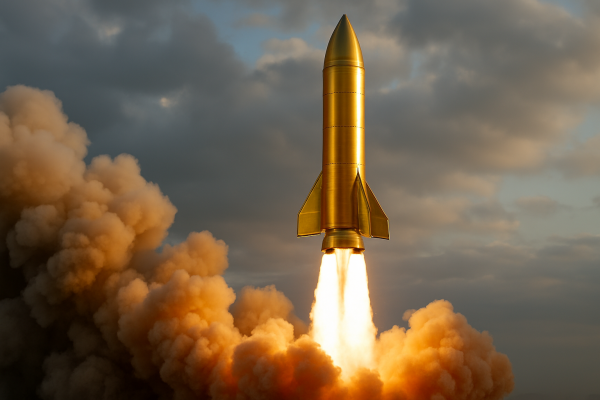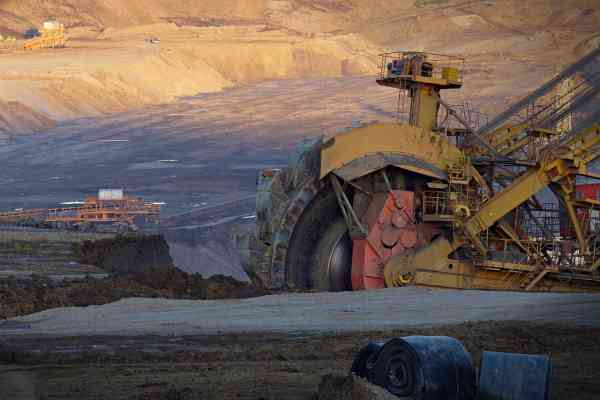November 2nd, 2023 | 07:55 CET
K+S, First Phosphate, Volkswagen - Phosphate: From fertilizer to high-tech application
Phosphate is an important nutrient for plants and animals and is used in agriculture as a fertilizer. It is also used in the food industry as an additive. Recently, however, the raw material has been needed in the high-tech environment. Battery manufacturers have an increased need for phosphate to produce lithium iron phosphate batteries, which are already used in some electric vehicles. The phosphate content in these batteries contributes to their stability and durability. If this technology becomes standard in all electric vehicles, demand will increase dramatically. So today, we take a look at fertilizer producer K+S, introduce a future producer in First Phosphate, and look at how Volkswagen is progressing in the area of electromobility.
time to read: 5 minutes
|
Author:
Armin Schulz
ISIN:
K+S AG NA O.N. | DE000KSAG888 , FIRST PHOSPHATE CORP | CA33611D1033 , VOLKSWAGEN AG VZO O.N. | DE0007664039
Table of contents:

"[...] Nickel, therefore, benefits twice: firstly from its growing importance within batteries and secondly from the generally growing demand for such storage. [...]" Terry Lynch, CEO, Power Nickel
Author
Armin Schulz
Born in Mönchengladbach, he studied business administration in the Netherlands. In the course of his studies he came into contact with the stock exchange for the first time. He has more than 25 years of experience in stock market business.
Tag cloud
Shares cloud
K+S - Quarterly figures coming up
Phosphate is one of the most important minerals for the body - no wonder it is also contained in fertilizers. In 2021/2022, German agriculture consumed 115,000 metric tons of phosphate. K+S is the largest fertilizer producer in Germany and had a record year in 2022. Due to lower fertilizer prices, the current year will be significantly worse than 2022. This could already be seen in the half-year figures, where sales fell from EUR 2.7 billion to EUR 2 billion. EBITDA dropped from EUR 1.2 billion to EUR 478 million.
EBITDA is expected to be between EUR 600 million and EUR 800 million this year, compared with EUR 2.4 billion last year. The figures for the 3rd quarter are due on November 14. Despite the significantly weaker figures, there have been some positive recent developments. Prices have started to bottom out on the important Brazilian market, which is expected to provide positive impetus for the 2nd half of the year. In addition, an agreement was reached with the environmental association BUND concerning the discharge of saline water into the Werra and Weser rivers. Not only in this area is attention given to the environment, but also in the logistics sector. Products continue to be transported by DB Cargo.
Global conditions, such as the shrinking of arable land and increasing water scarcity, are also creating a greater need for fertilizers in the long term. The Company has used its profits from last year wisely and paid down debt, so the balance sheet looks solid. Once the fertilizer market recovers, the Kassel-based company will benefit. Analysts are currently cautious, and in October, there was only one "Buy" recommendation from JP Morgan and two "Hold" recommendations. The share is trading around EUR 15.63 and is approaching the support area of EUR 14.35 and EUR 14.93.
First Phosphate - Sustainable phosphate production
Lithium iron phosphate (LFP) batteries are rapidly gaining importance in the battery industry. Unlike conventional batteries, LFP batteries are non-toxic, offer superior fire safety, longer lifespan and lower costs. This has led many major automakers in North America, Europe and Asia to shift their production to LFP batteries. Companies such as Tesla, Ford and Mercedes-Benz are already using LFP batteries, and this trend is expected to grow in the coming years. However, this shift will require high-purity phosphate. First Phosphate, with its 1,500 sq km Lac à L'Orignal project, has access to very rare Igneous anorthosite rock that yields one of the purest phosphates in the world and is virtually free of heavy metals.
The Company specializes in the extraction and purification of phosphate for the production of LFP cathode active materials for LFP batteries. To do this, First Phosphate employs a partnership-based model to establish a vertically integrated phosphate production from the raw material source to the production of purified phosphoric acid and LFP cathode material. This strategy enables the Company to serve the needs of the technology industry, particularly in the automotive sector. In doing so, the Company is mindful of the environment. Unlike many other purified phosphoric acid producers, the gypsum produced is fully recyclable. Otherwise, sedimentary gypsum is radioactive and must be stored.
All these points have led the Company to receive a Letter of Interest (LOI) from the Export-Import Bank of the United States (EXIM) on September 26. This LOI indicates that EXIM is willing to provide financing of up to USD 170 million, subject to a positive due diligence review. On October 10, the Company appointed Jerome Cliche as Vice President of Business Development. He brings experience in corporate finance and business development. The Company is thus preparing for its next steps. Investors interested in learning more about the Company are encouraged to view the Company's presentation from the International Investment Forum. Since September 25, the stock has been running sideways between CAD 0.26 and CAD 0.415 and is currently trading at CAD 0.29.
Volkswagen - Q3 Results
Volkswagen is focusing on electric vehicles and sustainable mobility solutions to capitalize on the global shift toward clean energy and environmental awareness. The Wolfsburg-based company is relying on lithium iron phosphate batteries for its new entry-level electric models, such as the ID.2 and UrbanRebel. All batteries are to come from the Gigafactories, which are being built in Salzgitter and Valencia. Production is scheduled to commence in 2025. However, it will then be another 18 months or so before deliveries of the electric vehicles, which are expected to cost under EUR 25,000.
On October 26, the Group presented its figures for the 3rd quarter. Sales climbed 16% to EUR 235.1 billion in the first 9 months. A total of 6.8 million vehicles were sold, an increase of 8%. However, operating profit decreased by 7% to EUR 15.2 billion. At Volkswagen, in particular, the operating margin fell to 3.4%. Things went better at Skoda and Seat, which were more profitable. In the electric vehicle (BEV) segment, growth of 45% to 531,500 units was reported. This brought the share of BEVs to 7.9% of total deliveries. The Group plans to invest EUR 180 billion by 2027, focusing on digitalization and electrification. The Company's key technology platforms are architecture, batteries and charging, software, and mobility.
As the Company has weakened in China's largest BEV market, the strategic partnership with XPeng could help it regain its footprint in China. Margins are expected to be boosted by a multibillion-dollar cost-cutting program. Fundamentally, the stock, which is trading at around EUR 99.60, appears cheap. However, as a dividend hunter, one should consider that the dividend in the coming year could be lower than recently. After the quarterly figures, there were 5 buy recommendations with price targets between EUR 140 and 190. Only UBS recommended selling with a target price of EUR 100.
The demand for phosphate is increasing due to the use of the raw material in batteries for the automotive industry. K+S is currently not affected by this. Here, it is more a matter of lower potash prices melting profits. First Phosphate is benefiting from rising demand because high-purity phosphate is rare, and the Company can mine it in an environmentally friendly manner. Volkswagen already has plans to use lithium iron phosphate batteries; however, the Company is currently in a transformation phase.
Conflict of interest
Pursuant to §85 of the German Securities Trading Act (WpHG), we point out that Apaton Finance GmbH as well as partners, authors or employees of Apaton Finance GmbH (hereinafter referred to as "Relevant Persons") may hold shares or other financial instruments of the aforementioned companies in the future or may bet on rising or falling prices and thus a conflict of interest may arise in the future. The Relevant Persons reserve the right to buy or sell shares or other financial instruments of the Company at any time (hereinafter each a "Transaction"). Transactions may, under certain circumstances, influence the respective price of the shares or other financial instruments of the Company.
In addition, Apaton Finance GmbH is active in the context of the preparation and publication of the reporting in paid contractual relationships.
For this reason, there is a concrete conflict of interest.
The above information on existing conflicts of interest applies to all types and forms of publication used by Apaton Finance GmbH for publications on companies.
Risk notice
Apaton Finance GmbH offers editors, agencies and companies the opportunity to publish commentaries, interviews, summaries, news and the like on news.financial. These contents are exclusively for the information of the readers and do not represent any call to action or recommendations, neither explicitly nor implicitly they are to be understood as an assurance of possible price developments. The contents do not replace individual expert investment advice and do not constitute an offer to sell the discussed share(s) or other financial instruments, nor an invitation to buy or sell such.
The content is expressly not a financial analysis, but a journalistic or advertising text. Readers or users who make investment decisions or carry out transactions on the basis of the information provided here do so entirely at their own risk. No contractual relationship is established between Apaton Finance GmbH and its readers or the users of its offers, as our information only refers to the company and not to the investment decision of the reader or user.
The acquisition of financial instruments involves high risks, which can lead to the total loss of the invested capital. The information published by Apaton Finance GmbH and its authors is based on careful research. Nevertheless, no liability is assumed for financial losses or a content-related guarantee for the topicality, correctness, appropriateness and completeness of the content provided here. Please also note our Terms of use.




